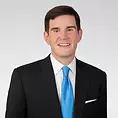Super PAC Opponents Move Ahead with Legal Challenges But Face Longer Odds in 2017
Opponents of independent expenditure-only committees, more commonly referred to as super PACs, continue to forge ahead with legal challenges designed to undermine one of the most important political speech decisions in the last decade: the D.C. Circuit’s decision in SpeechNow.org v. FEC, which recognized super PACs. These challenges, however, were brought at a time when many prognosticators expected Hillary Clinton to reverse a 5-4 pro-First Amendment majority on the United States Supreme Court by nominating a liberal justice to replace the late Antonin Scalia. Now, with Justice Neil Gorsuch on the Supreme Court, the likelihood of success for super PAC opponents appears to have diminished significantly. But this has not stopped super PAC opponents from continuing to pursue their legal challenges before the Federal Election Commission (FEC) and in one Florida municipality, with several important developments having happened on these fronts in recent weeks.
Last summer, Oregon Democratic Senator Jeff Merkley, an organization called Free Speech for People (FSFP), and others filed a complaint with the FEC alleging that a bipartisan group of ten super PACs had violated the federal law limiting the amount of contributions that any one political committee may receive. (Because they act independent of candidates, super PACs are generally allowed to accept unlimited funds from corporations and individuals.) The complaint acknowledged that the SpeechNow.org case – which was grounded in constitutional (rather the statutory) principles – as well as existing appellate precedent and an earlier FEC advisory opinion, might lead the FEC to dismiss the complaint. However, FSFP and its allies argued that the FEC could reject a binding court of appeals ruling provided it did so to secure “a reasonably prompt national resolution of the question in dispute” – e.g., Supreme Court review of the lower court precedent. The FEC commissioners did not buy this argument, however, as the complaint was dismissed unanimously. On June 22, those responsible for filing the original FEC complaint nevertheless filed a lawsuit in federal court seeking review of the FEC’s decision. FSFP makes clear the goal of the lawsuit on its website: “abolishing super PACs in US elections.”
The same group behind the FEC complaint has also pushed the St. Petersburg City Council to the brink of enacting a local ordinance abolishing super PACs in their municipal elections. On June 22, the St. Petersburg City Council voted 5-3 to advance the proposed ordinance toward a final vote in July. Proponents recognized that the ordinance will be subject to an almost immediate court challenge, but they are hopeful that since the U.S. Court of Appeals for the Eleventh Circuit - whose jurisdiction includes Florida - and the U.S. Supreme Court have never directly ruled on super PACs, the local ordinance has a chance of being upheld as constitutional. The City Council’s own lawyer was very skeptical of this analysis, however, and portions of the Council meeting focused on just how much the city’s attorneys’ fees bill would be if the city lost the case.
Ultimate resolution of these cases will likely be a year or two down the line but should occur before the 2020 presidential elections. Again, however, given Judge Gorsuch’s appointment, the most likely outcome would appear to be one that favors those who have embraced the constitutionality of super PACs.

